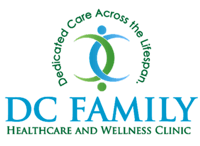Your Vitamin Benefits and Sources Guide
There are 13 vitamins that help our bodies function properly. The best way to stay healthy with There are 13 vitamins that help our bodies function properly. The best way to stay healthy with development and function is to eat a balanced diet through a variety of foods. Here is your guide to know the benefits and what source foods to consume for these vitamins. Vitamin A (Retinol, Beta Carotene) helps with vision, reproduction, immunity, cell growth and cell communication. Also it assists in formation and the maintaining of bones, teeth, soft tissue, mucous membranes and skin. The best sources for Vitamin A are carrots, squash, leafy green vegetables, broccoli, and cantaloupe. Other sources include liver and fish oils, tomato products, milk and eggs.
Vitamin B1 (Thiamine) aids in cell development and function. It also converts food into energy. Your sources for Vitamin B1 can be found in whole grains, pasta, and rice. Also Vitamin B1 is in meat (especially pork), fish, seeds, nuts, and legumes such as black beans and soybeans.Vitamin B2 (Riboflavin) promotes body growth and production of red blood cells. The best sources for Riboflavin are lean and organ meats, low fat milk, eggs, broccoli, spinach, and asparagus.
Vitamin B3 (Niacin) helps maintain healthy skin and nerves. It also helps the digestive system. Niacin can be consumed with fish, lean meats, poultry, milk, eggs, legumes, and peanuts.
Vitamin B5 (Pantothenic Acid) is needed to metabolize food and helps produce hormones and cholesterol. Your sources for B5 include chicken liver, salmon, sunflower seeds, avocados, mushrooms, sweet potatoes, egg yolks, and yogurt.
Vitamin B6 (Pyridoxine) helps to form red blood cells, maintain brain function, and supports protein synthesis. B6 is in fish, organ meats, poultry, and starchy vegetables such as potatoes.
Vitamin B7 (Biotin) is needed to metabolize proteins and carbohydrates. Also, it helps to produces cholesterol and hormones. Sources for B7 include sweet potatoes, onions, tomatoes, carrots, nuts, eggs, and oatmeal.
Vitamin B9 (Folic Acid) is needed to produce DNA, which controls cell function and tissue growth. It also helps red blood cell formation. Legumes are a great source for B9, as well as citrus fruits and their juices. Spinach, asparagus, dark leafy greens, carrots, cauliflower, and beets are also good sources.
Vitamin B12 (Cyanocobalamin) assists in maintaining the central nervous system, aids in metabolism and the forming of red blood cells. B12 is found in beef liver, clams, fish, meat, poultry, milk, eggs, and other dairy products.
Vitamin C (Ascorbic Acid) helps the immune system, healing wounds, and absorption of iron. Sources for Vitamin C include citrus fruits and their juices, strawberries, cantaloupe, kiwi, potatoes, broccoli, tomatoes, red and green peppers.
Vitamin D (D2 Ergocalciferol, D3 Cholecalciferol) helps maintain proper blood levels of phosphorous and calcium for healthy teeth, gums, and bones. The best sources for Vitamin D aresalmon, mackerel, and tuna. There are also small amounts in egg yolks, cheese, and beef liver. Milk is also fortified with Vitamin D.
Vitamin E (Tocopherol) boosts the immune system and helps with cell communication. It also helps widen blood vessels to prohibit clotting. Wheat germ, vegetable, sunflower and safflower oils, nuts and seeds, are the best sources for Vitamin E. There also small amounts in broccoli, spinach, corn and soybean oils.
Vitamin K (Phylloquinone) is important for blood clotting and healthy bones. The best sources are green leafy vegetables, blueberries, figs, meat, cheese, eggs, soybeans and vegetable oils. Also note, some food products are fortified with vitamins and can be added to the natural sources!

